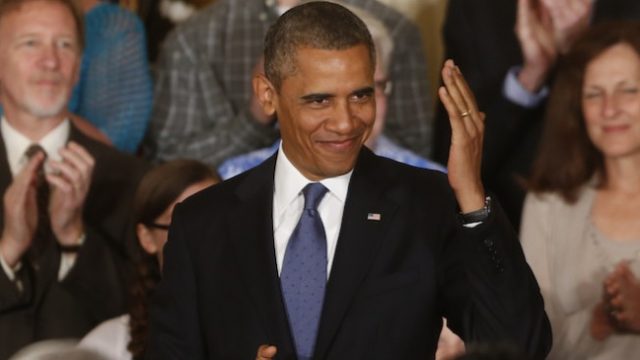North Dakota Gets Just 10% Of Expected Obamacare, Medicaid Enrollments

The Obama administration estimated that nearly 70,000 in North Dakota were uninsured before the Affordable Care Act passing, and state officials estimated the Medicaid expansion alone would attract 30,000 new sign-ups. The new Obamacare regulations impacted 35,585 North Dakotans in the individual insurance marketplace, with many of them being pushed off their existing policies.
Yet, despite all that, as of today just 4,057 North Dakotans have signed up for Obamacare through the federal health insurance exchange through February 1st, plus about 3,100 enrollments in the Medicaid expansion through February according the state Department of Human Services. That’s being reported as a “jump” in enrollment by Hannah Johnson at the Bismarck Tribune, and while it is a roughly 50 percent increase, it’s not exactly an impressive number.
Especially in the context of what we were told was the uninsured/underinsured problem in North Dakota. Where are these tens of thousands of people in the state who were supposedly going to flock to the exchanges? Plus, of the just over 4,000 people who have enrolled, how many have paid for the coverage? How many really needed the insurance versus the number who were pushed off existing policies they liked?
The Obama administration hasn’t been forthcoming with this information.
The drop-dead date for enrolling this year is Marcy 31st to get insurance starting May 1st. Beyond that, the next enrollment date starts in November, but anyone signing up at this point may face penalties from the IRS (depending on what parts of the law President Obama feels like enforcing, I suppose).
Regardless, by any measure, Obamacare in North Dakota has been an unmitigated disaster.
Especially worthy of criticism are the North Dakota leaders who insisted that the Medicaid expansion, required by Obamacare but made optional by a ruling from the Supreme Court, was something that just had to be done. Given the paltry number of enrollments so far, it’s hard to argue that the policy was a necessity for the state.




